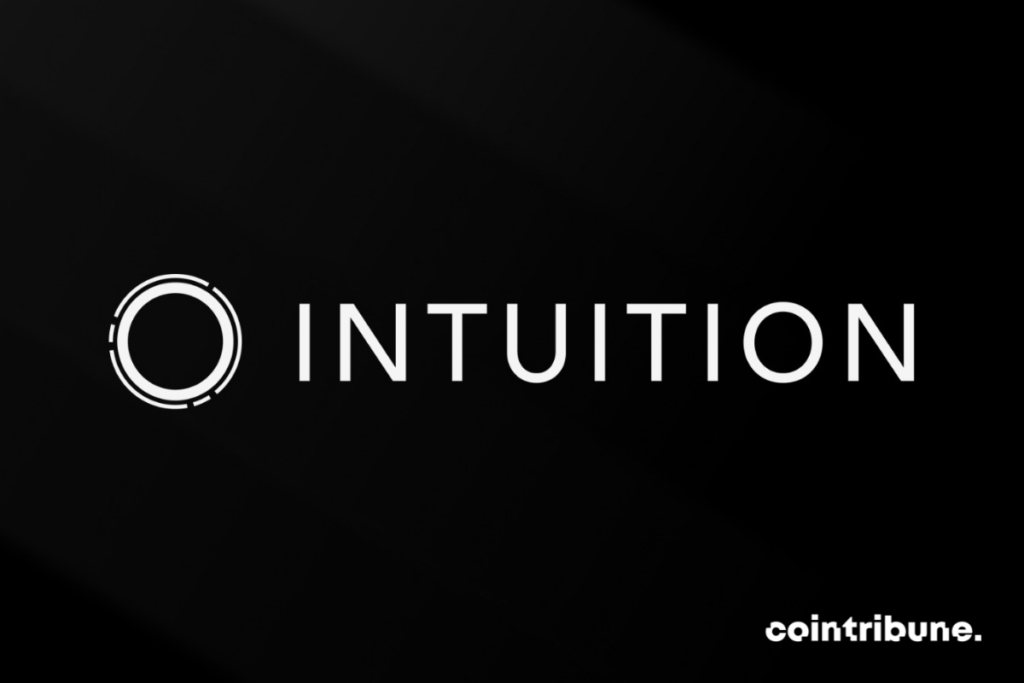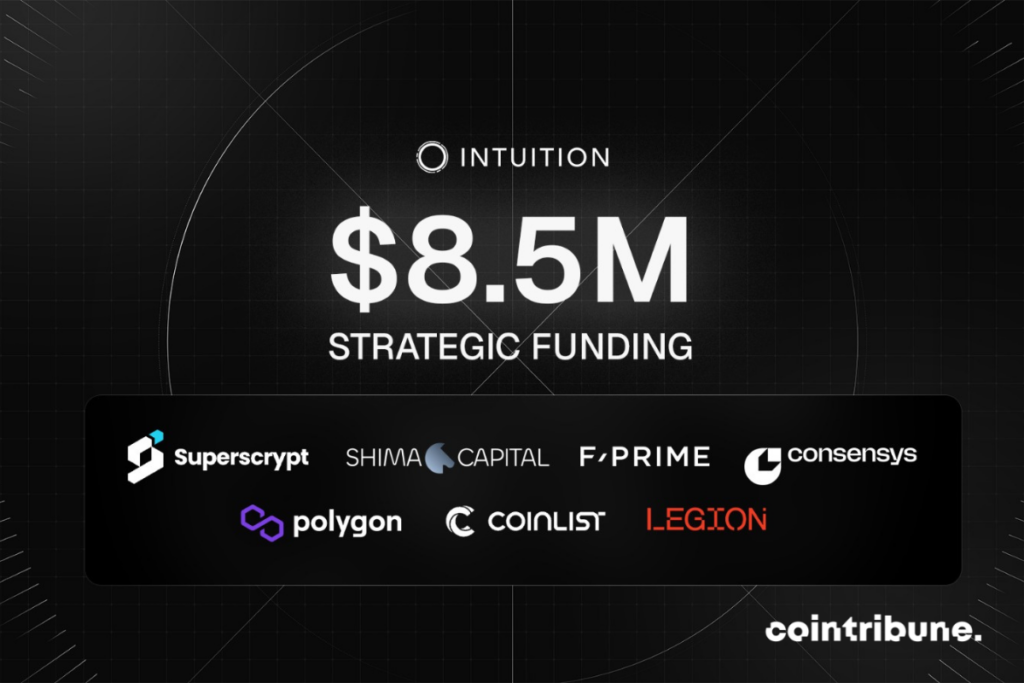Intuition Raises $8.5M and Launches Mainnet to Become the "Trust Layer" for the Internet and AI
In a digital world saturated with unverified information, Intuition introduces a blockchain infrastructure designed to anchor reputation, knowledge, and structured data directly on-chain. Its ambition: to create a foundation for verifiable, composable information systems that serve both users and AI agents. Backed by $8.5 million in funding and strong testnet performance, the project enters production as one of the few Layer 3s to demonstrate real pre-launch traction.

In brief
- Discover how Intuition leverages blockchain to combat misinformation by anchoring reputation and structured data directly on-chain.
- Explore the architecture of Intuition as an Arbitrum Orbit Layer 3, built for identity, reputation, and decentralized knowledge systems.
- See how Intuition’s testnet metrics and community engagement set a new benchmark for Layer 3 projects.
- Understand how Intuition turns data into a tradable asset class through staking and tokenized governance.
From Concept to Mainnet : A Data Layer That Attracts Attention
Intuition is built as an Arbitrum Orbit Layer 3 that settles on Base, the Ethereum L2 developed by Coinbase. Rather than optimizing for financial transactions like most L2s, Intuition focuses on high-throughput information operations, identity, reputation, and knowledge graphs.
Its system introduces two primitives : Atoms, which represent token-curated identifiers for entities, and Triples, which are structured subject-predicate-object assertions forming a decentralized knowledge graph. These statements are created, curated, and validated through economic staking mechanisms. The more stake behind a claim, the more weight it carries, defining both its credibility and its discoverability.
This architecture enables developers to bypass the complexity of building proprietary reputation systems. Instead, they can tap into a shared information layer that handles trust, provenance, and inter-app interoperability. For end users, it means owning their social graph and receiving economic recognition for their contributions. For AI, it opens access to structured, cited data with traceable origin, reducing hallucinations and bias at the source.

Rare Traction for a Layer 3 Ahead of Launch
Before its mainnet went live, Intuition had already proven its operational model. Over the course of eight weeks, its final testnet processed 17.5 million transactions across more than 900,000 unique accounts. These figures stand out in a segment where Layer 3 projects rarely achieve such volume pre-launch.
Its beta on Base attracted 244,000 participants, and more than 5 million attestations were verified during earlier phases. This level of activity suggests not only a well-executed technical rollout, but also strong demand for decentralized data primitives.
Investors seem to agree. The $8.5 million round included backers such as Shima Capital, Superscrypt, ConsenSys, Polygon, and F-Prime, with additional support from platforms like CoinList and Legion. High-profile individuals including Ethereum co-founder Joseph Lubin also participated.
Toward a Market of Programmable Knowledge
The concept of Information Finance (InfoFi) underpins Intuition’s economic design. Just as DeFi made financial assets programmable, InfoFi proposes that facts, attestations, and reputations can be traded, verified, and governed through tokenized mechanisms.
The native token, $TRUST, is used for transactions, curation, and governance. It enables users to perform complex queries, pay for access to verified information, and stake value behind the data they support. This creates a direct link between informational quality and economic incentives.
Intuition also bridges ecosystems. Partnerships with Google Cloud, MetaMask, Recall Network, Fleek, and Gaia aim to integrate on-chain identity with both decentralized apps and traditional digital infrastructure. As the line between AI and crypto continues to blur, verifiable data systems like Intuition’s could become essential, not just for blockchain apps, but for the web at large.
FAQ : Intuition in 3 Questions
A new sector aiming to transform information into a programmable financial asset, with economic curation mechanisms similar to those in DeFi but applied to knowledge and reputation.
Oracles (Chainlink, etc.) import external data to the blockchain. Intuition creates a native system where data is born on-chain with integrated reputation and economic weight.
Yes, for creating data, curating information, or performing complex queries. Basic read operations may remain free or low-cost to encourage broad accessibility.
Maximize your Cointribune experience with our "Read to Earn" program! For every article you read, earn points and access exclusive rewards. Sign up now and start earning benefits.
Diplômé de Sciences Po Toulouse et titulaire d'une certification consultant blockchain délivrée par Alyra, j'ai rejoint l'aventure Cointribune en 2019. Convaincu du potentiel de la blockchain pour transformer de nombreux secteurs de l'économie, j'ai pris l'engagement de sensibiliser et d'informer le grand public sur cet écosystème en constante évolution. Mon objectif est de permettre à chacun de mieux comprendre la blockchain et de saisir les opportunités qu'elle offre. Je m'efforce chaque jour de fournir une analyse objective de l'actualité, de décrypter les tendances du marché, de relayer les dernières innovations technologiques et de mettre en perspective les enjeux économiques et sociétaux de cette révolution en marche.
The views, thoughts, and opinions expressed in this article belong solely to the author, and should not be taken as investment advice. Do your own research before taking any investment decisions.